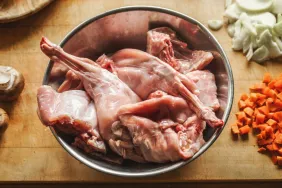Intestinal tract disease in dogs happens when lymphatic fluid leaks into the gastrointestinal tract. Generally, the condition causes a loss of protein.
Generally, middle-aged dogs seem to develop the condition the most. Additionally, certain breeds including the Soft-Coated Wheaten Terrier, Yorkshire Terrier, and Basenji seem to suffer from the condition more than usual.
Technically, the condition is also known as lymphangiectasia in dogs.
If you see the signs of the condition in your dog, then get to a veterinarian for a proper diagnosis and treatment.
Here’s what you should know about the symptoms, causes, and treatments for the condition.
Symptoms of Intestinal Tract Disease in Dogs
The condition produces a range of symptoms. For instance, some of the most common symptoms include:
- Weight loss
- Diarrhea (chronic)
- Appetite loss
- Dehydration
- Gas
- Breathing problems
- Coughing
- Vomiting
- Stomach pain
- Stomach fluid
Causes of Intestinal Tract Disease in Dogs

The cause of the condition is often congenital. This means that a dog is born with the condition.
However, the following factors can also cause the condition:
- Pericarditis
- Inflamed intestine
- Right-sided congestive heart failure
Additionally, the following dog breeds seem most likely to develop the condition:
- Soft-Coated Wheaten Terrier
- Rottweiler
- Basenji
- Maltese
- Yorkshire Terrier
- Shar Pei
Treatments for Intestinal Tract Disease in Dogs
Firstly, your vet will ask about your dog’s symptoms. Secondly, your vet will attempt to rule out other conditions that produce similar symptoms.
Thirdly, a full physical examination will be carried out. Blood and urine tests will be taken. A fecal smear test will also be conducted. Additionally, X-rays and ultrasounds can be considered. Also, an endoscopy or biopsy can help to diagnose the condition.
Generally, treatment will initially stabilize your dog. For example, diuretics and anti-inflammatory medication can be used.
Ultimately, diet changes are key to treating this condition. Specifically, a low fat and high protein diet can help. Also, supplements can be considered. Your vet will help formulate a safe diet for your dog.
Additionally, a course of steroids can be prescribed to help with any ongoing inflammation. As always, if your vet prescribes your dog any medicine, make sure to stick to the correct dose and frequency instructions. Also, complete the full course of medicine.
While recovering at home, it is important to monitor your dog’s weight. Regular vet appointments can also help to make sure your dog is on the right track to a successful recovery.
Have you ever cared for a dog who suffered from this condition? How did your vet help your dog recover? Let us know in the comments section below.









